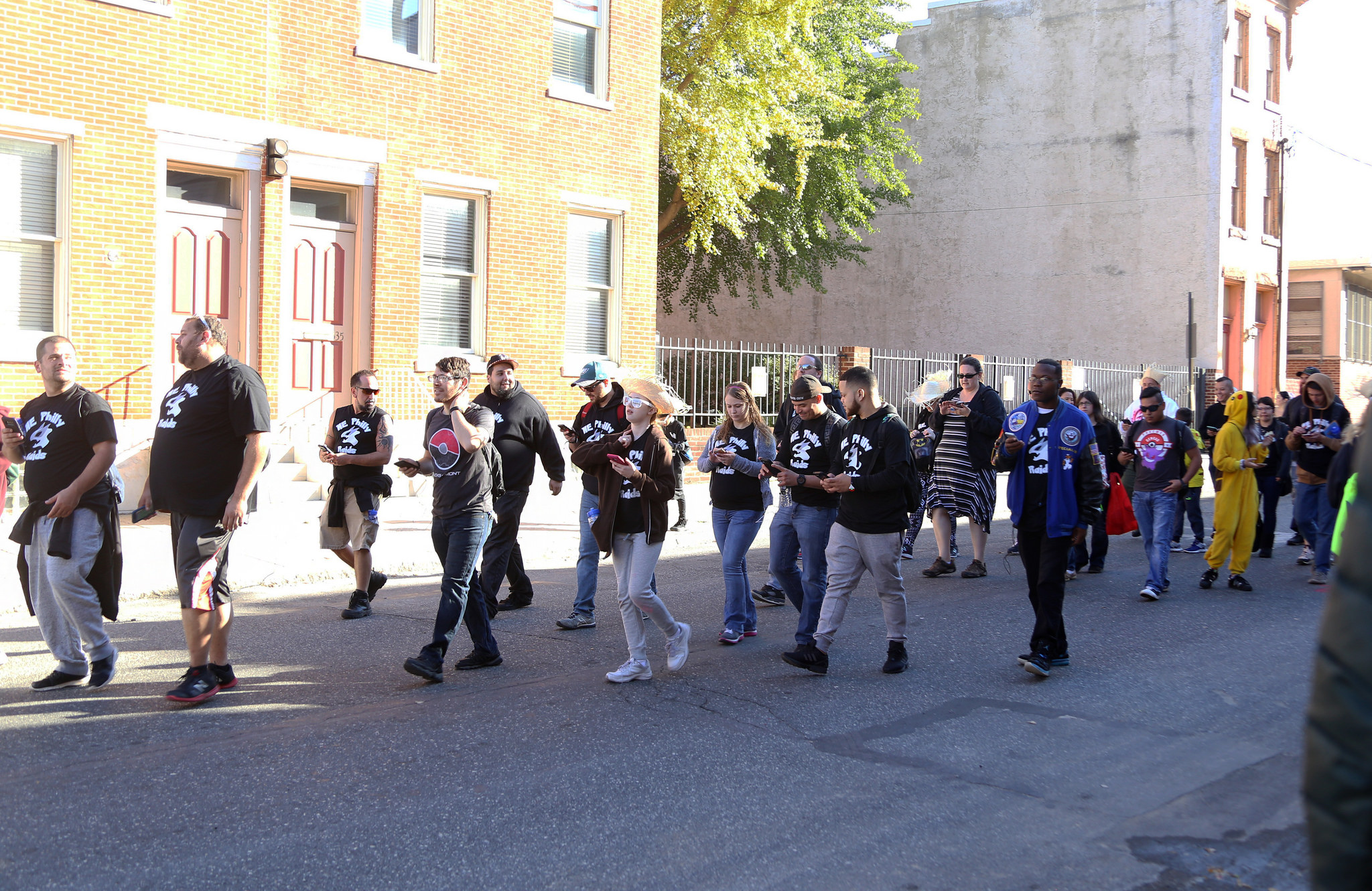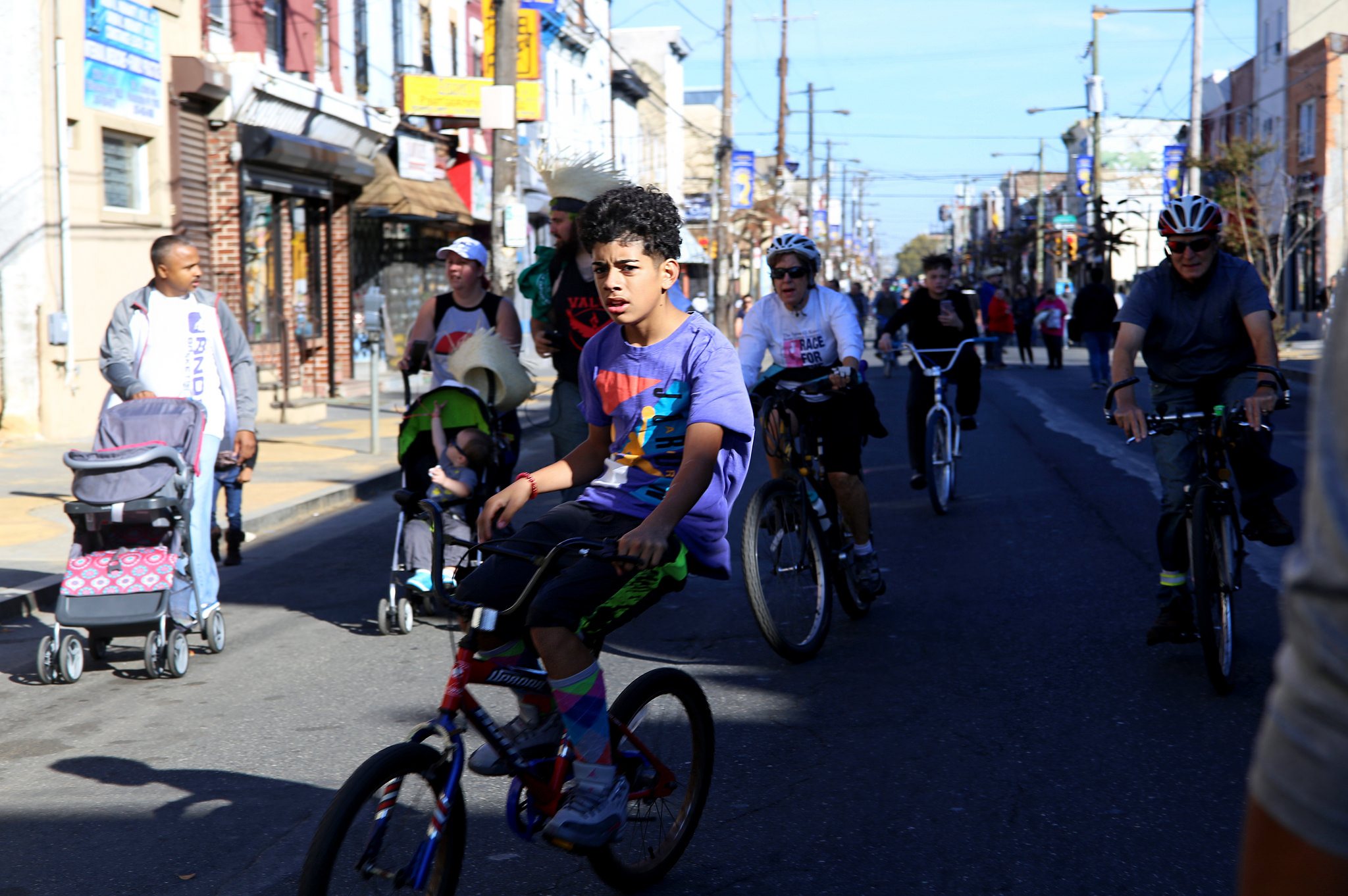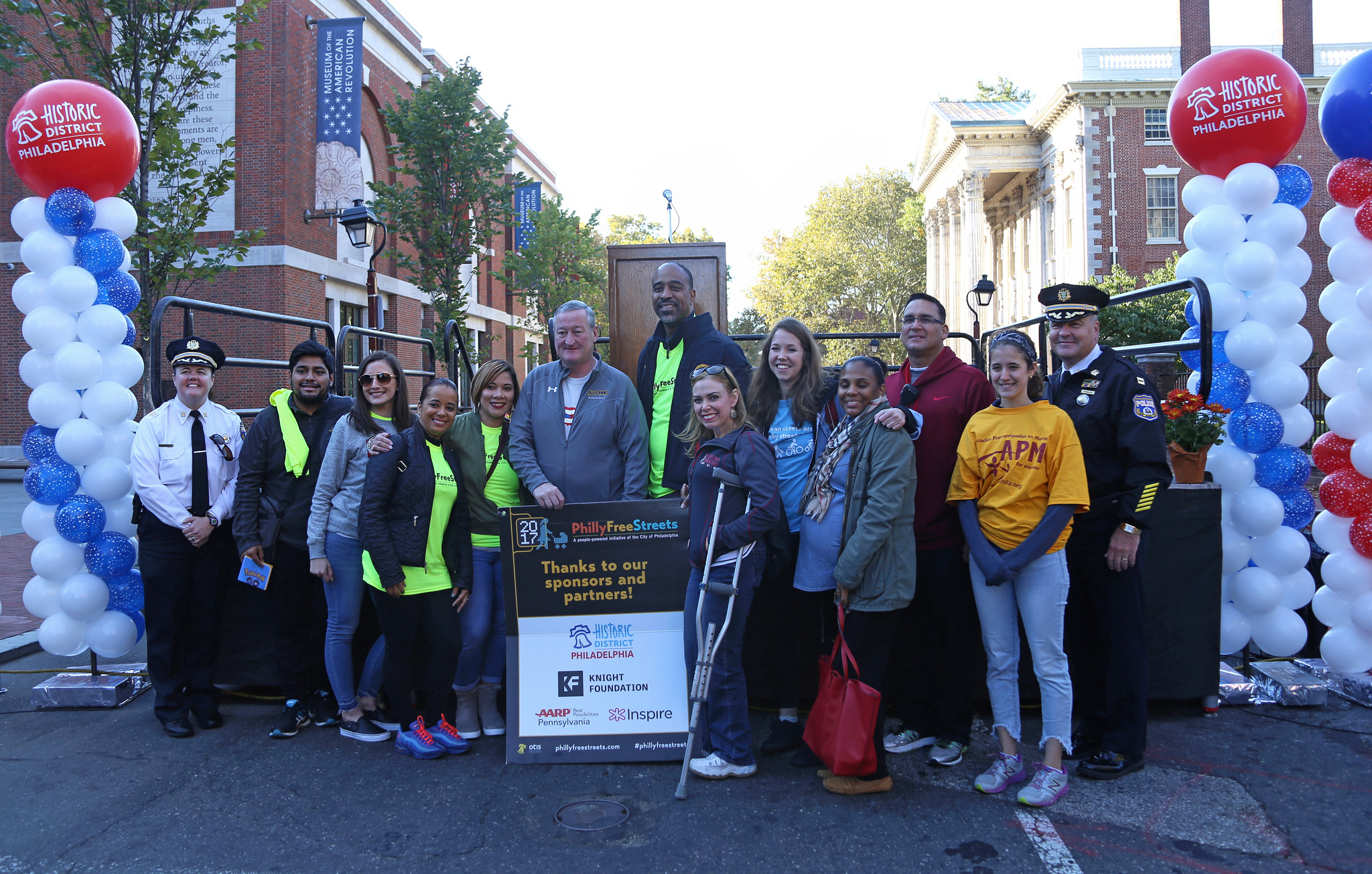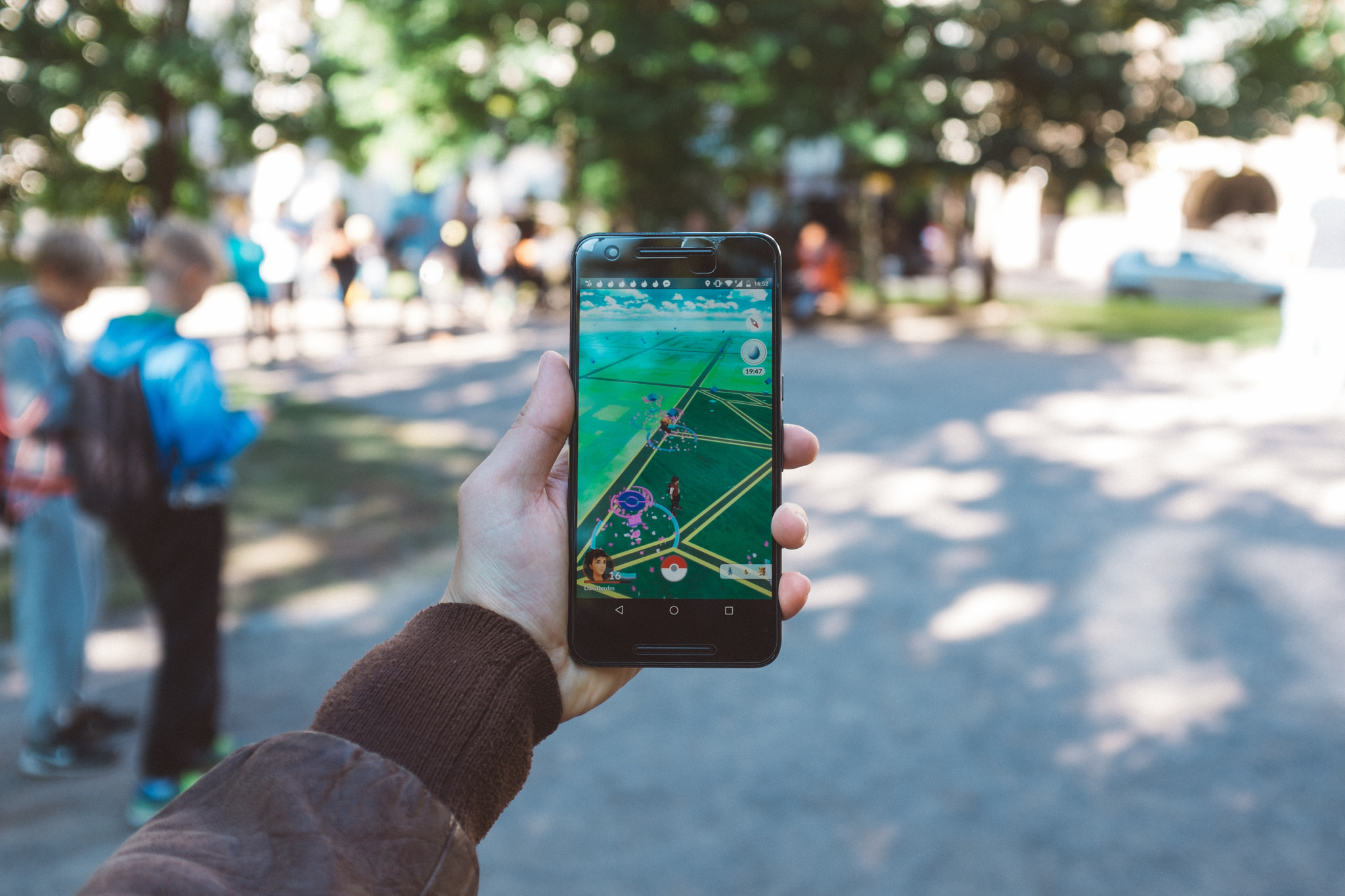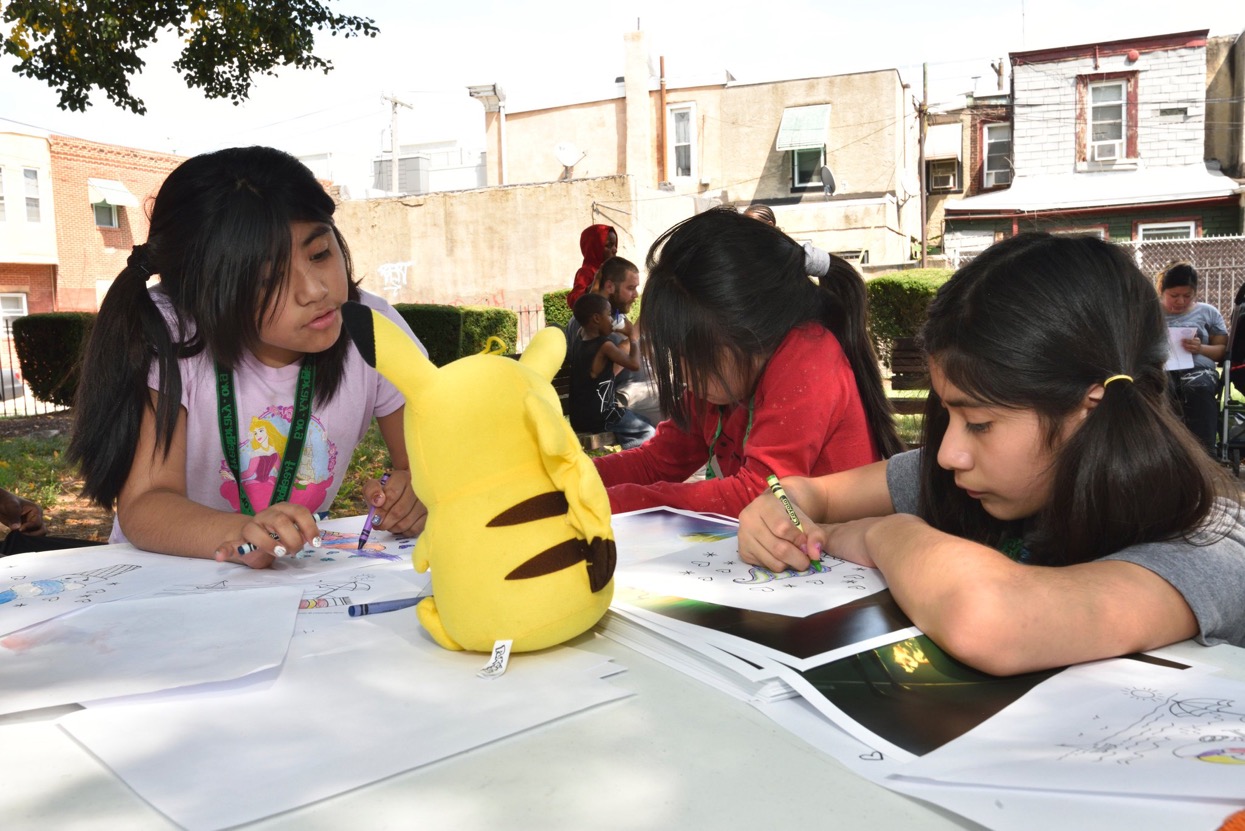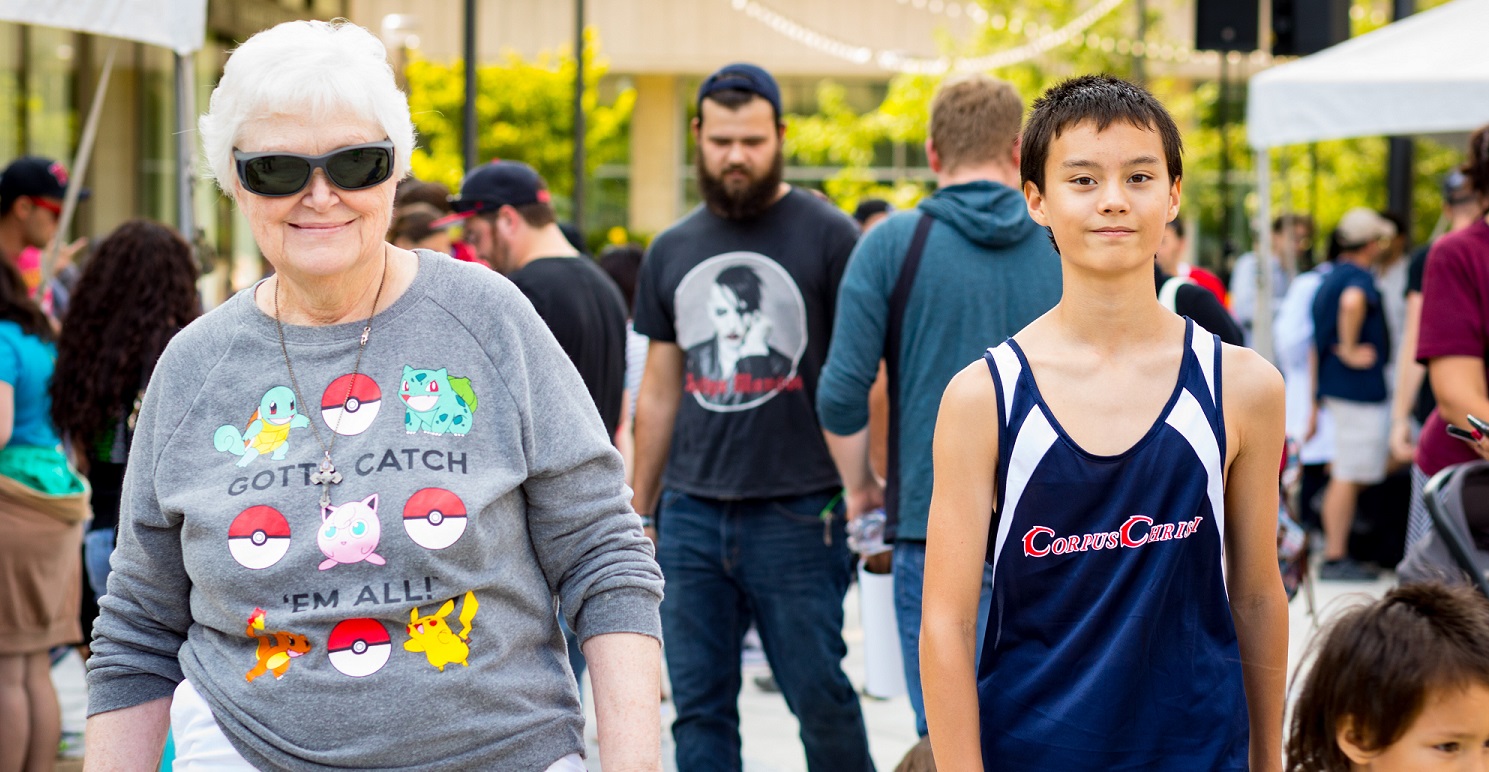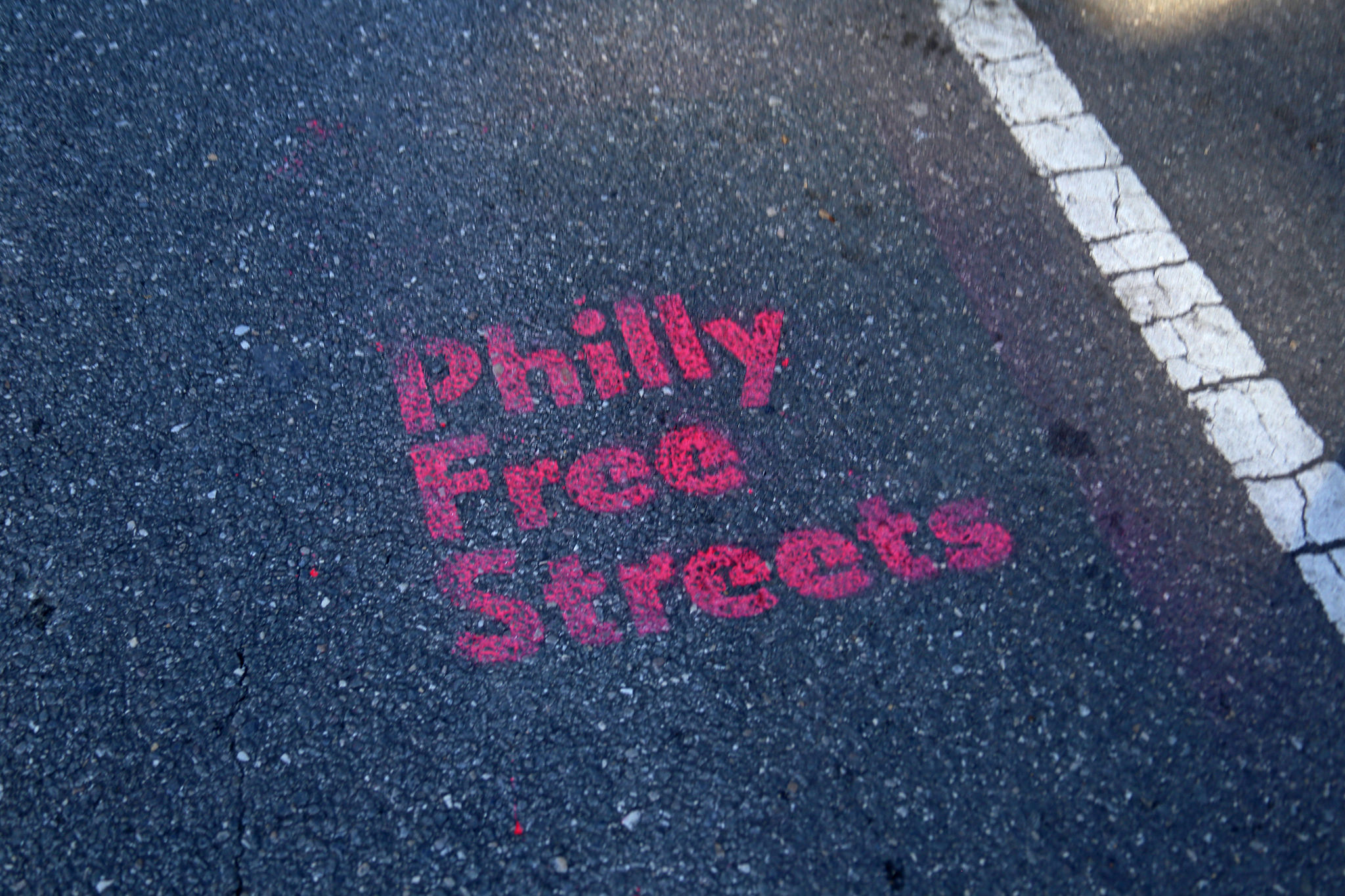
Streets for people: Using Pokémon GO to power civic engagement
Charlotte Castle is the Vision Zero and neighborhood programs coordinator for the City of Philadelphia’s Office of Transportation & Infrastructure Systems (OTIS). Below she writes about an October 2017 initiative launched by Knight Foundation and Niantic, the creators of Pokémon GO, to explore how technology can foster community engagement in several cities where Knight invests.
Last fall, the City of Philadelphia’s Office of Transportation & Infrastructure Systems teamed up with Knight Foundation and Niantic, maker of Pokémon GO, to bring the popular mobile game to the city’s second Philly Free Streets program. Philly Free Streets is a people-powered initiative that temporarily closes streets to cars, inviting people to walk, bike and play. From Philadelphia’s Historic District to the heart of Latino Philadelphia, the 2017 Philly Free Streets event connected several diverse neighborhoods with rich histories and cultural traditions. By integrating Pokémon GO into the 2017 Philly Free Streets program, we used technology to further encourage participants to explore the history and culture of each unique neighborhood.
As part of Philly Free Streets community planning, we invited neighbors to identify historical, cultural or community sites along the car-free route to serve as Pokéstops. We were looking to highlight the ways in which our city’s rich past has been folded into contemporary life in the Historic District, beyond the existing historical markers. In addition, it was an opportunity for residents in the diverse neighborhoods along the route to share their stories.
Players participated in a scavenger hunt to engage with stops along the route. To bridge any digital or language barriers, Philly Free Streets developed opportunities to participate in both English and Spanish. Those who visited each of the Pokéstops and explored the full-length route earned a Pokémon GO poster – and, even better, the satisfaction of exploring multiple Philadelphia neighborhoods.
Through this pilot, Philly Free Streets learned valuable lessons that may be helpful to other cities and communities as they consider experiments of their own:
- Inviting community involvement advances inclusion and engagement. The Pokémon GO pilot required community involvement; we didn’t feel we could identify Pokéstops without community input. By inviting neighbors to participate in the programming planning, conversations were struck up about the rich history of, sometimes, seemingly ordinary places, and relationships were fostered.
- Cities can adapt existing initiatives to keep pace with today’s technology. By integrating popular technology into existing programs – such as open streets events – cities are poised to grow their audience of engaged citizens. However, they should be mindful of the people who may have limited access to technology. A balance can be achieved, if you are strategic!
- Local government should embrace experimentation. The future success of cities hinges on our willingness to adapt and embrace change. While it can be challenging to integrate of experimentation into an existing program, the lessons learned and relationships built make it worth it!
These discoveries, combined with other lessons learned, give us food for thought as we reflect on the 2017 Philly Free Streets program, and consider future planning and civic engagement efforts. One thing is certain: With over 10,000 Pokémon GO participants in the 2017 program, there is a clear demand for partnerships that embrace innovation and cater to changing community preferences.
-
Communities / Article
-
Communities / Article
-
Communities / Article
-
Communities / Article
Recent Content
-
Communitiesarticle ·
-
Communitiesarticle ·
-
Communitiesarticle ·
